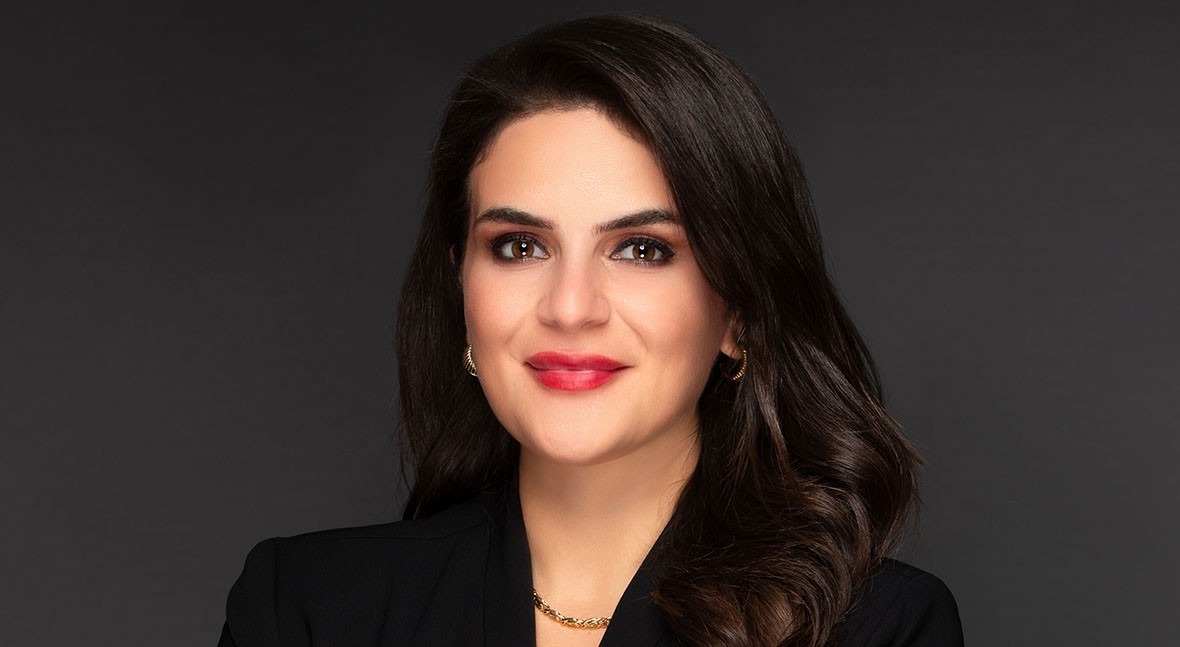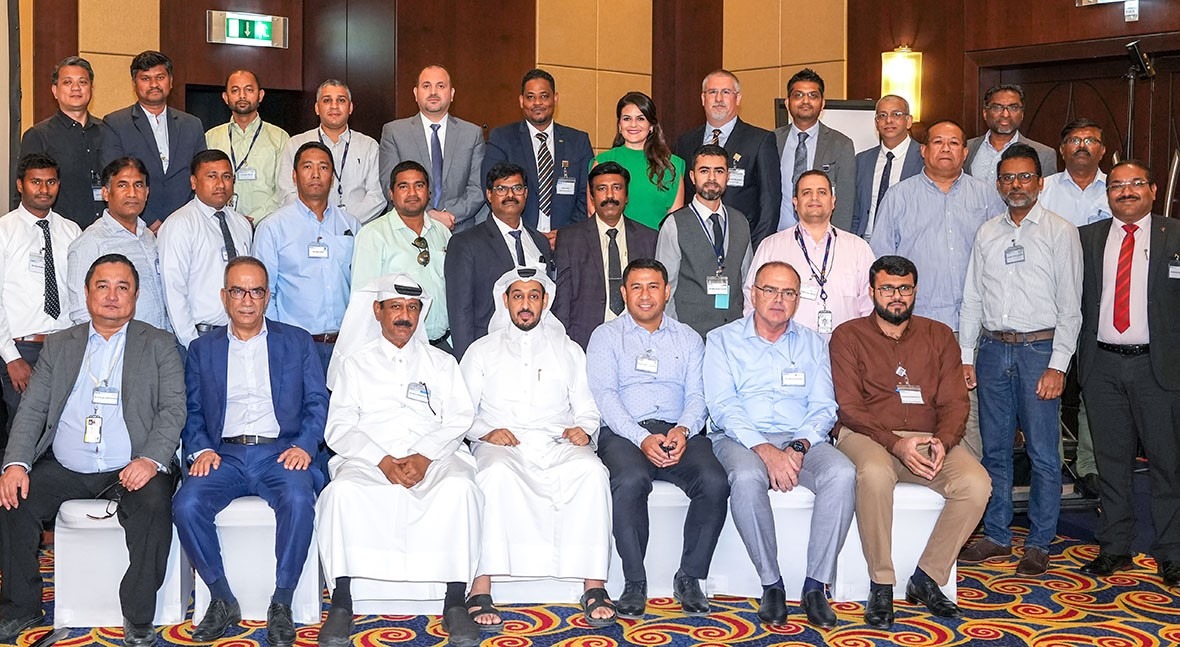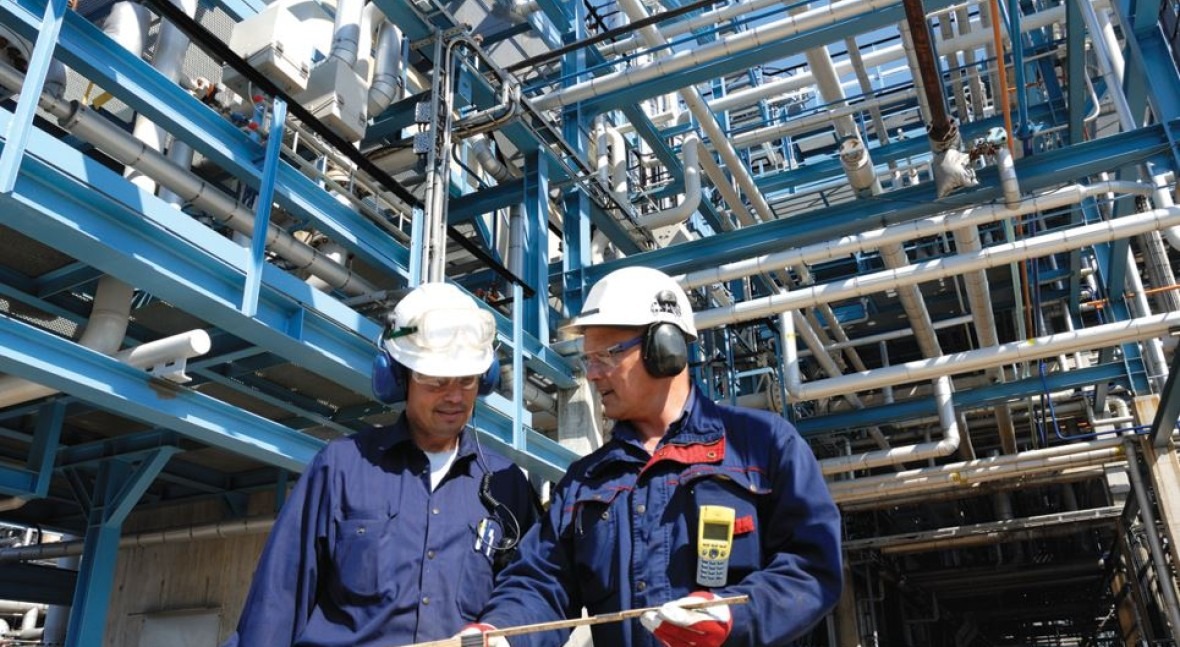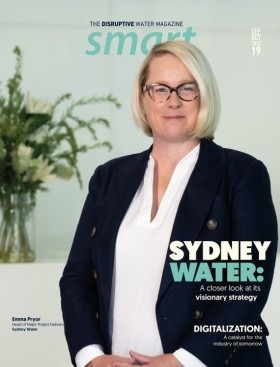"At Nalco Water, we help our customers to minimize water and maximize operational performance"

Nalco Water, an Ecolab Company, is a world-renowned industry leader in providing comprehensive water and process management solutions. It collaborates with clients across various sectors, assisting them to achieve their sustainability and business objectives.
The water sector in India, the Middle East and Africa (IMEA) presents a dynamic landscape with unique challenges and opportunities. Across the Middle East and North Africa, its inhabitants face unprecedented water scarcity, warned The World Bank this year, estimating that by 2050, an additional 25 billion cubic metres of water per year would be needed to meet the region’s needs. The rest of Africa is facing similar challenges with 13 African countries listed as water insecure according to the recently released Global Water Security 2023 Assessment. Meanwhile India only has 4 per cent of the world’s freshwater, but the planets second largest population at over 1.3 billion. The total water demand in India is projected to increase by 22% and 32% in 2025 and 2050 respectively. Nevertheless, water company Nalco Water is working proactively to find answers to these complex scenarios. In Nalco Water’s IMEA team is Nergis Yapici, Industry Development Manager (India, Middle East & Africa) who sat with Smart Water Magazine to analyse the current water situation in this part of the world, helping reinvent the way that water is managed.
Can you tell us briefly about your career path and your current role at Nalco Water?
My entire journey has been powered by my strong love for water. Water is a common theme, present in my academic pursuits, my engineering roles as well as my current position as a regional Industry Development Manager at Nalco Water, an Ecolab Company, a global sustainability leader offering water, hygiene and infection prevention solutions and services that protect people and the resources vital to life.
Equipped with a mechanical engineering degree (Dipl.-Ing) from Germany's RWTH Aachen University, I further honed my expertise through research on water treatment in the framework of the Marie Curie International Fellowship Program at the University of Technology Sydney, Australia.
India’s soaring population and scarce water resources create a decrease in per capita water availability, urging ingenious solutions
In 2022, I joined Nalco Water after nearly a decade at Veolia Water Technologies in Germany and the UAE. Progressing through roles and taking on global missions as a process engineer, water management auditor, sales/business development manager and regional marketing manager, I have had the privilege to grasp each facet and cycle related to water management and treatment, from design and commissioning to sales and marketing. In the process, I have realized that my passion lies in working with international teams to elevate business and enhance customer experiences.
Today, as a marketer, I support the Institutional business within Nalco Water’s Light Water division, interacting with everything from strategy development to go-to-market implementation at the cluster level. Additionally, I serve as the country partner for KSA, Bahrain, UAE, Egypt, Pakistan, and Turkey, supporting sustainable growth and profitability. As a bridge between local sales, corporate accounts, product management, technical experts, innovations, and solutions, I strive to cultivate success and drive positive outcomes.
I am fulfilled by my passion for water, and I enjoy working with Nalco Water to help reinvent the way that water is managed. Nalco Water’s comprehensive approach includes a complete assessment of water use within plants to identify opportunities to reduce, reuse and recycle water. With advanced technologies like 3D TRASAR™ programs for water performance management, we help our customers across various sectors to minimize water while maximizing operational performance, reducing total cost.
What are the key opportunities and challenges for business development in the water sector in India, the Middle East and Africa (IMEA)?
The global water sector stands at a critical juncture, as increasing population, urbanization, and environmental concerns continue to shape the demand for efficient and sustainable water management solutions. This holds particularly true for the diverse geographies in IMEA.
India is home to 18% of the world’s population but holds only 4% of its water resources. The rapidly growing population, surging economy and increased urbanization spark the need for advanced water systems. Yet, the country's soaring population and scarce water resources create a decrease in per capita water availability, urging ingenious solutions.
The growth potential of Africa shines bright, driven by its vast water resources that hold the promise of boosting agriculture and industry
Across the arid Middle East, the necessity of water drives innovation, pushing desalination and reuse tech to the forefront. While desalination provides a solution, it comes with challenges. The energy-intensive and expensive nature of desalination poses economic and environmental concerns. The region's vulnerability to climate change further exacerbates water scarcity issues. Many Middle Eastern countries find themselves listed among the top ten most water-scarce nations globally, underscoring the urgency of efficient water management. On the positive side, there's a growing realization that sustainability is crucial. This has resulted in a surge in investments in water reuse technologies.
Across Africa, the potential for growth shines bright, driven by its vast water resources that hold the promise of boosting agriculture and industry. However, the uncertainty of climate patterns looms large, reminding us that unpredictable droughts and water scarcity challenges must be met with robust strategies to ensure lasting and sustainable development.
What do you consider are the current trends and market dynamics shaping the water sector in IMEA for business development?
The water sector in IMEA is experiencing a dynamic shift towards sustainability, innovation, and digitalization. These factors are shaping the landscape for business development and investment opportunities.
Across IMEA there's an increasing emphasis on sustainability and environmental regulations. Governments and businesses are recognizing the need to adopt more sustainable practices to ensure long-term water availability. This includes implementing water-efficient technologies, promoting responsible consumption, and adhering to stricter water quality standards.
The adoption of digital technologies and smart water solutions is on the rise. From real-time monitoring to data analytics for predictive maintenance, technology is enabling more efficient water management.
How does Nalco Water, an Ecolab company, address water scarcity, offer efficient technologies, adhere to regulations, and embrace sustainable practices?
Water is integral to our customers’ key processes, like heating, cooling, production, and cleaning. Nalco Water helps companies treat and manage water with solutions and expertise that enhance productivity, improve product quality, conserve water and energy and protect against the risks of waterborne illness.
Our water management programs support a wide range of industries (including food and beverage, automotive, microelectronics, paper, steel, power generation, chemicals, and mining) and diverse types of facilities (plants, commercial, educational and government buildings, hotels, hospitals, and more).
As water scarcity increasingly threatens business operations in areas around the world, our customers are setting ambitious goals to use less water. Through a comprehensive approach that includes a complete assessment of water use within their plants, we use a suite of solutions to help them minimize water while maximizing operational performance and reducing total cost.
We measure the impact of our solutions, helping customers quantify their return on investment and track operational improvements and progress across a range of performance goals.
What are the emerging technologies and innovations driving business opportunities in the water sector in IMEA?
Nalco Water uses a suite of solutions to help customers minimize water while maximizing operational performance and reducing total cost
Our primary innovation areas are chemical products, automation and control systems, and advanced monitoring and digital services, which encompass antimicrobials; solids chemistry; hygiene; clean-in-place technology; scale, deposit and corrosion control; polymers and surfactants.
These advancements are shaping the way companies approach water management, conservation, and sustainable practices. To delve further into 3D TRASAR technology for advanced water performance management, the solution relies on an interconnected ecosystem of smart technology, innovative chemistry and extensive expertise to proactively solve problems and deliver results to improve a range of industrial operations.
3D TRASAR systems detect the upsets that precede scaling, corrosion and biofouling and then deliver the appropriate response. The result is a balanced, efficient, and safe cooling, boiler, wastewater or membrane system that requires less maintenance, eliminates over-/under-dosing of chemicals and provides maximum asset protection at lower operating costs. 3D TRASAR technology feeds into our ECOLAB3D™ digital platform, which translates data into actionable insights to further optimize customers’ operations.

What role can digitalization play in addressing the water challenges of the future in the MENA region, and can you elaborate more on the Ecolab Global Intelligence Center (EGIC) and ECOLAB3D™ Platform?
Digitalization can play a transformative role in addressing complex water challenges and operational goals. As water scarcity, population growth and environmental pressures intensify, leveraging digital technologies becomes crucial in optimizing water management, and enhancing efficiency and sustainability. This is where our Ecolab Global Intelligence Center and ECOLAB3D™ analytics platform come into play.
The Ecolab Global Intelligence Center:
Delivers data-driven, forward-looking solutions that empower customers to achieve ambitious sustainability and operational goals.
- Works with Ecolab’s global network of 25,000 field sales-and-service associates to provide customer-centric support so companies can quickly act on the information that matters most.
- Operates globally through six locations around the world, with locations in India, KSA, Brazil, China, North America and The Netherlands.
- Provides multi-lingual, 24 / 7 / 365 service for a range of digital technologies, including more than 30,000 connected 3D TRASAR™ systems across the globe. These systems connect to solutions built on ECOLAB3D™.
Our primary innovation areas are chemical products, automation and control systems, and advanced monitoring and digital services
A pioneer in connected technology, Ecolab has gained years of insight from working on the ground at nearly three million customer locations. Building on this experience, we developed ECOLAB3D™, a multi-dimensional, secure cloud-based platform that hosts and contextualizes data from a variety of connected intelligence systems.
Using advanced algorithms to generate analytics and actionable insights, ECOLAB3D services help customers address and predict challenges so they can balance business and sustainability goals. The ECOLAB3D platform hosts a variety of digital services, such as OMNI™, Water Flow Intelligence, Water Safety Intelligence, Water Quality Intelligence, Service Intelligence, and more.
These services help:
- Detect anomalies and predict issues to maximize uptime, reduce the total cost of operations and increase business performance.
- Identify out-of-spec equipment and assets to benchmark system performance and optimize asset utilization.
- Quickly identify performance opportunities and benchmark systems at the asset, operating unit, plant and enterprise levels.
- Provides predictive assessment of site risk across a customer’s enterprise to mitigate potential challenges and operational impacts.
Ecolab is working to achieve a net positive water and carbon impact with its 2030 Impact Goals. How is it contributing to water conservation and efficiency practices, particularly in the MENA region?
A pioneer in connected technology, Ecolab has gained years of insight from working on the ground at nearly three million customer locations
In 2020, Ecolab launched ambitious sustainability goals to continue to increase our positive impact through our work with our customers, accelerate our efforts within our operations, expand our approach to product sustainability, nurture our talent and live our values in our workplace.
Within its operations, by 2030 Ecolab will work to (i) achieve a positive water impact; (ii) halve carbon emissions and pursue 100% renewable electricity; (iii) promote a diverse and inclusive workforce and advance pay equity and gender and non-majority representation; (iv) continue to train and educate all associates to work safely.
In addition, by 2030, Ecolab aims to help customers to conserve 300 billion gallons (1.1 trillion litres) of water, equivalent to the annual drinking water needs of 1 billion people; become carbon neutral by reducing greenhouse gas emissions by 6 million metric tons and preventing 10 million pollution-related illnesses; provide high-quality and safe food for 2 billion people and prevent 11 million foodborne illnesses annually; and clean 90 billion hands and provide safe medical care for 116 million people each year, helping to avoid 1.7 million infections annually.
In 2022, we helped customers:
- Save 219 billion gallons (829 billion litres) of water.
- Conserve 45 trillion Btu of energy.
- Avoid 3.6 million metric tons of greenhouse gas emissions.
- Avoid more than 60 million pounds of waste.
- Prevent 8 million foodborne illnesses.
- Prevent almost 6 million pollution-related illnesses.
- Produce 44% of the global processed milk supply.
- Make 36% of the world’s packaged food.
- Clean 57 billion hands.
- Provide safe and high-quality food to 1.4 billion people.
- Provide medical care to 64 million people.
- Reduced 2.1 million infections.

Could you tell us about some of Nalco Water’s success stories on water use and sustainability in the MENA region?
We are helping our customers across various sectors, and I would like to illustrate the transformative potential that a fresh perspective can bring, through a notable example from the hospitality industry.
We partnered with a leading global brand to help them achieve their business and environmental objectives across the region.
The hotel’s regional engineering department asked Nalco Water to review its water treatment program to see if there were any opportunities to reduce water consumption in the cooling towers. Our local representative immediately identified low cycle issues in the existing cooling tower program. Nalco Water’s analysis showed that the systems could safely be operated at 5 cycles of concentration vs. the current operation at 3 cycles of concentration (COC). So, what impact does the increase of cycles of concentration have on your business & the environment? As a result of implementing our cooling water program, the hotel achieved a total annual saving of 250,000 dollars, including:
- Saving of water equivalent to the annual drinking water need of 27,000 people.
- Decreasing energy consumption, equivalent to the annual energy use of 46 households.
- Reducing CO2 emissions, equivalent to the annual emission of 113 passenger vehicles.
- Avoiding waste equivalent to 2007 plastic bottles of 2 litres.
These numbers are just one example of how Nalco Water delivers value for millions of customers worldwide. By partnering with us, our clients and customers can experience similar results and take a step towards a safer, simpler and more sustainable future.





